
to Hive being
welcome
What is Hive Being, and Why the Name?
You have likely heard talk of a hive mind, where one global mind finds more or less figurative expression in various local minds. Such talk is common enough in nature documentaries, especially ones concerning ants or bees, and in sci-fi programs. Take that notion, at least a loose version of it, and broaden its scope. That will be a decent first step in understanding the title I have chosen both for my Blog and for the first five-volume installment of my magnum opus Made For You and Me, a fragmentary collection of minimalist stanzas from 2016 to 2020.
In alignment with Spinoza (the 17th Century Rationalist to whom I devoted my doctoral studies), I view reality in its totality as a grand hive Being: all entities are but pulsating manifestations of the buckstopping fount of everything, an ultimate being we might call “God” or “Nature” (so long as, out of respect for the capital “G” and the capital “N,” we limit it neither to some anthropomorphic cloud father hurling lightning bolts nor to mere wilderness untouched by human smog). According to the hive-Being view (where reality is one lone superorganism, a monistic—and we might even say unividualist—conception I defend in both my creative and academic capacities), each non-foundational being (each being, that is, whose essence does not involve existence) is an utterly necessitated expression or eruption or exudation of this eternal source—each is, perhaps better put, a mode or manner of being, and so a focal point through which is disclosed, what classical theists sometimes call “being itself” (ipsum esse subsistens): the realness of the real, the being of whatever may be, the sheer activity of being, the very isness of whatever is. This Blog, which duplicates my Substack, throbs as but one among many literary unfurlings of this self-necessitated foundation, this supreme wellspring, of which we—like black holes and broken beliefs, like fractal ferns and flickering flames—are the inevitable stylings.
My Journey
I am an academic who found himself pressured into early retirement by the rising tides of cancel culture. The illiberal scourge of censoring, silencing, and shaming—although always with us throughout our evolution—reached a local peak around 2021. That was the turbulent year my creative pursuits, which the old left once encouraged as a healthy outlet for the stresses of a childhood steeped in poverty and illiteracy, drew the ire of the new safe-space left. A small cadre of self-proclaimed victims and their allies, several of whom continue to berate me years later under pseudonyms as see through as their sexual infatuation, sought to erase me and my heterodoxy. They found support from a wannabe-woke dean, covered in the grand inquisitor robes of our decadent modernity (full-body tattoos) and just itching to signal his commitment to protecting “vulnerable populations” from triggering material (even if just, as it was in my case, off-duty poems “unbecoming for someone calling himself a teacher”). Although I eventually won my due-process case with the help of The Foundation for Individual Rights and Expression, I slunk away from a college that turned its back on protecting freedom of expression and from an institution increasingly intolerant of intellectual diversity.
The wrecking ball to my too-comfy office in the windowless ivory tower came with a silver lining. From the ashes of my professional aspirations rose a phoenix of increased freedom to fulfill the literary calling I have pursued for decades. Reputation concerns never stopped me, even within academia’s sterile halls of conformity. Indeed, my unapologetic defiance, which has long baffled friends and family, no doubt chummed even safe waters—almost as if I were asking for it all along—until the cancel shiver grew too frenzied to hold back its blind thrashings. But now, now I piston the most forbidden territories of human thought with no longer even a twinge of conscience. The newfound freedom means extra time to hone my craft. When not assisting special-needs communities (a day job far more rewarding than freeway-flyer drudgeries), I pursue my literary mission with Dionysian fervor.
Call for Co-Conspirators
This space, my digital sanctuary, showcases the fruits of my mission. Think of my posts, even those linking to my publications, as works in progress. I want your input, unflinching brutality included. Each post begins with an invitation to action: “Let’s workshop this [draft about x, y, z].” Your contributions, whether through public comments or my contact page, help hammer scraps of ore into polished blades fit for magazine publication.
Your input is valuable, even if you are neither a writer nor a reader of literature—twin disciplines dying by the cyber nanosecond. Sometimes—even if at the risk of uttering banalities—an outsider’s fresh vantage can pierce the veils of convention to reveal what insiders miss. It often takes an outsider to make us even think to question our ingrained presuppositions and attitudes. I stand by the hygienic value of contagion. That is one reason I advocate so strongly for intellectual diversity and freedom of expression. And that is also one reason I was so harrowed by the anti-diversity swell of cancel culture in academia (an institution that should be the utmost caretaker of such values)—harrowed especially insofar as that swell masqueraded under the gaslighting guise of “diversity”).
You will witness the breathing evolution of my writings over time. To track these changes, I label each revision by round: “ROUND 2,” ROUND 3,” and so forth. Each piece undergoes continuous refinement based on your feedback and my own revisitations. Sometimes changes will mar the work. That is the risk of creative tinkering as a finite creature. I hope you will alert me to missteps. After many semesters of university writing workshops, one rule has impressed itself upon me: when someone senses a flaw, something almost always needs to change—even if, yes, the proposed solution misses the mark (which often it does). From a quick look into the archives, accessible here, you can see how much I have benefited from your feedback so far.
My Hope
Sharing drafts can be daunting. But showing you the ravaged and unperfumed real deal unfiltered by makeup (stuttering starts and falsities, awkward line breaks and clumsy word choices, grammatical errors and misspellings)—that not only makes my work more relatable, but helps me refine things through your input. I hope the unfiltered look at the raw process of fumbling, rather than just the polished product, also helps other writers develop their craft. Imperfect works often instruct more than perfect ones: whereas the perfect ones tend to have a grace by which they slip inside us without activating our scrutiny, the imperfect ones—especially the near perfect ones—show us glaringly what not to do.
People laugh at me, seeing—in my tilting at the windmills of literary excellence—a Don Quixote clunking around in Arthurian armor in a post-knight era. I am not naïve. I am well aware of the diminishing ability to read, let alone well: slowly and deeply, with gratitude. I am also aware that my style, which often nests subpoints within larger points, never waters down virtuosity for the sake of mass appeal. I watch readers stumble over my sentences, unable to unlock even just the music of the envelope let alone the semantic meat within, which—given my tendency to flashlight through the darker facets of human nature (the addicts, the miscreants, the abusers among us)—only adds an additional alienating layer of difficulty). Beholding these depressive scenes of even supportive family members getting bucked off my syntactic bronco makes me feel like a dinosaur who should get a hint and, if not succumb to the brain rot of skibidi-toilet speak, just hang himself already. Even though the decline in linguistic background and grammatical voltage makes my compositions seem quixotic in a world binging Netflix and TikTok, I persist—raging against the dying of the light—by some internal compulsion to celebrate the richness of language and thought.
My hope is that, despite social media’s unparalleled power to farm our attention, people never forget the unique power of writing. Beyond unveiling hypocrisy, teasing out complex implications, and detailing the commonalities between even the most alien phenomena, writing offers something we need today—trapped in agoraphobic cyber bubbles only thickened by the Lyme dangers of forests and the COVID dangers of cities—perhaps more than ever. Granting us rich access to the first-person perspectives of others (to how things feel to them), writing serves as one of humanity’s best tools for combating loneliness. It allows us to linger, broadly and deeply and at high resolution, within the inner lives of others in a way that other arts can only suggest.
What to Expect
My work spans a broad spectrum: from metaphysical discourses on free will and determinism and the ontology of holes to the ephemera of western culture (whether the childhood impacts of the hypersexual mono-image of black woman as squirting twerkers or Terrence Howard’s sham revolution of mathematics). Some tight and minimal, others free-flowing sprawls; some heady and abstract, others emotional and imagistic—my inkwell musings, which often blend scholarly rigor with a dark humor from both high and low culture, aim to capture the visceral intensity of our personal and social and ultimately existential predicaments.
By no means can I deny that drug abuse, sexual assault, and the tales of the broken and the damned loom large in the tag cloud of my work. My writing will never be a paradise of easy truths and comforting lies. It will challenge you, provoke you, and at times even repulse you. I offer no apologies for the monsters I unleash. They are as much a part of us, at long root scared rodent mammals scurrying in the shadows of dinosaurs, as our noblest aspirations.
But make no mistake. It is not all downer darkness. The archives are my receipts. You will find pieces exploring the pursuit of authenticity in a media-saturated world, the search for meaning in an indifferent cosmos, and the celebration of beauty in both the sublime and the profane. I locate much of my inspiration, in fact, in novelists like Dostoevsky and poets like Ted Kooser—writers unafraid to pursue moral agendas or risk Hallmark sentimentality in an age that often sneers at sincerity.
Be they satirical dissections of modern social dynamics or poignant poems about addiction or academic articles on moral responsibility, my goal is to provoke thought, evoke emotion, and foster meaningful dialogue. Fear has not and will not stop me from challenging humanity’s fundamental taboos (like bestiality and cannibalism) or self-reflecting into the dark chaos of the subconscious, even if that means exposing the Jungian shadows—the inner Goebbels—lurking within us all!
Expect posts each day, no day missed. Donations are welcome, but I impose no paywall: it feels wrong to charge for art, especially given our date with obliteration. Feel free to explore what amounts to, at the time of writing this, close to a thousand pieces of poetry and prose here. That should give you a sense of what awaits.
Join me—specula holstered—on this literary odyssey into the public and private nooks of the hive Being. Let us navigate the labyrinth of creation together, confronting our demons and even slaying our darlings if we must. Let us dance on the razor’s edge between the sublime and the profane in pursuit of an elusive literary perfection never to be confused—as it has been confused in our declining civilization—with the pursuit of popularity or likeability over truth.
tag cloud
- literature community
- American literature
- poetry
- literature
- poem
- literary
- creative writing
- writing
- poetry community
- Michael Istvan
- Istvan
- perception
- defiance
- suffering
- existential poetry
- dissociative
- existential
- healing
- human
- mortality
- power
- art
- God
- artist
- poet
- evolution
- love
- death
- darwin
- anxiety
- crack
- meditation
- sex
- adolescence
- psychoanalysis
- rape
- campus warrior
- Nietzsche
- substance abuse
- poverty
- addiction
- Earth
- sensual
- resilience
- hardship
- homeless
- addict
- rapist
- trauma
- therapy
- Life affirming
- hypersexual
- traumatic
- sexuality
- grooming
- anal
- dogs
- hyperarousal
- choking
- anal sex
- true crime
- identity
- prison
- parenthood
- disease
- traitor
- parenting
- treachery
- love letters
- cunnilingus
- honey pot
- vines
- christianity
- power dynamic
- woke
- junkies
- religion
- faith
- safe space
- hoodlum
- murder
- islam
- worship
- thugs
- Biggie
- babies
- Vaginal
- hypocrisy
- cancel culture
- muslims
- baby feet
- care
- pound town
- feet
- cops
- olympics
- dread
- homosexual
- dead
- blm
Posts

Threat Level Midnight Ladder
“Threat Level Midnight Ladder” is a terse, fragmentary, and highly charged poem that exposes the collision of adolescent sexual awakening, patriarchal surveillance, and cultural repression, all compressed into a scene of thwarted desire and abrupt containment. The poem uses explicit language, bodily detail, and a jarring shift in imagery to highlight how budding sexuality is aggressively policed, especially when gender, innocence, and cultural signifiers collide.
The title, “Threat Level Midnight Ladder,” draws on the language of maximum security alerts and covert escape. “Threat Level Midnight,” an absurdly heightened state of alarm, signals the panic around emerging female sexuality, while “Ladder” implies a secret path — a window, a means of climbing out, a precarious bridge between childish innocence and illicit erotic knowledge. The title alone sets the poem up as a darkly comic but unsettling fable about the adult panic surrounding adolescent bodies.
The opening expletive, “Fuck that age when the neighbor / dad cockblocks your window / strokery—” catapults the reader into the speaker’s raw frustration. This “window strokery” alludes to clandestine masturbation and voyeurism, situating the speaker as both observer and participant in a drama of desire that is immediately under threat. The “neighbor dad” becomes a petty patriarchal enforcer who intervenes to “cockblock,” shutting down the possibility of sexual exploration.
The next lines — “brown budlet / just starting to plump / those raw-kneed Dora shorts” — juxtapose childlike imagery with the faint eroticism of pubescent change. “Budlet” and “plump” evoke a body in bloom, while “raw-kneed Dora shorts” pin the girl to a specific, embarrassingly juvenile marker of childhood. This clash of erotic charge and childlike costume intensifies the reader’s discomfort, mirroring society’s horror at the ambiguous age when a child’s body becomes newly visible as sexual.
The poem then shifts abruptly: “and then bam, in a blink, dribbling / her soccer ball up and down / the sidewalk in eye-mesh burqa / like a black Pac-Man ghost.” The girl’s transformation is total — her budding sexuality, having provoked panic, is now concealed beneath an “eye-mesh burqa.” This piece of clothing, traditionally signifying modesty and protection, becomes an instrument of forced invisibility. The “black Pac-Man ghost” simile renders her an anonymous, spectral figure haunting the sidewalk, evoking an image of devouring or evasion that suggests the futility of repression — the desire is not gone, only masked.
In effect, the poem functions as a savage, condensed critique of how patriarchal authority and cultural norms converge to surveil and repress adolescent female bodies. The speaker’s bitterness and crude defiance (“Fuck that age”) unmask the power dynamics that police the boundary between childhood and sexuality. The final image is not one of safety but of spectral erasure — a girl made ghostly to neutralize the “threat level” of her becoming.
transgressive poetry, adolescent sexuality, surveillance, patriarchy, modesty, burqa, voyeurism, repression, coming-of-age, policing desire, taboo, gender politics, childhood eroticism, cultural panic, containment, ghost imagery, visibility and invisibility.

Mary’s Hairbrush Handle*
“Mary’s Hairbrush Handle” is a volatile, taboo-shredding prose-poem that uses the most iconic consent story in the Christian canon — the Annunciation — to probe the hypocrisy and blind spots in how we treat sexual maturity today. Its core provocation is simple yet disorienting: if we recoil in moral outrage at the idea that a twelve-year-old Mary could have given real consent — to her betrothal to Joseph, let alone to becoming the literal “slave” (doulos) of an omnipotent God — then we must also reckon with what that standard implies about our own cultural assumptions that a modern teenager, or even a young adult, is automatically mature enough to handle complex, power-laden sexual dynamics.
The poem’s unsettling power comes from its fusion of biblical philology (“doulos,” not servant but owned chattel) with kink discourse (“DDLG,” “consensual non-consent”). By forcing the reader to look directly at the raw power asymmetry — a powerless young girl submitting to an all-powerful, all-knowing being — it exposes how fragile the idea of “informed consent” can be when the imbalance is that extreme. The piece plays with the reader’s discomfort: is this a disturbing metaphor for divine devotion, or an unspoken spiritual erotica hidden in plain sight? Either way, it shows how both atheists and apologists circle the same unease, yet rarely follow its logic to the real-world parallel.
The poem’s savage humor is its weapon. In one breath it imagines Luke, the Gospel writer, “getting a little plethysmograph-throbbing titillation spelling out the DDLG-BDSM terms of Mary’s relationship with God.” In the next, it ridicules how the pious hand-wave away the moral problem: if God is all-good, then any worry about exploitation must, by definition, be wrong — “any evidence our lying eyes ever thought we received… would simply have to be recategorized as a good thing.” This dark parody of theodicy sets up the bigger point: if we can’t trust a girl to freely consent to her entire self becoming a divine womb, how can we so blithely assume that modern young people, immersed in a hyper-sexualized, infantilizing culture, are ready to navigate complex sexual relationships?
The piece’s social commentary bites hardest when it contrasts Mary’s ancient context with today’s extended adolescence. The text spares no illusions about life in first-century Galilee: “grinding grain, pulling buckets of well water, tending livestock, mending clothes” — backbreaking domestic labor that forced girls into real, survival-driven adulthood before they ever menstruated. A twelve-year-old in that world, the poem argues, bore the kind of physical, emotional, and intellectual responsibilities that most 25-year-olds in developed nations today are only beginning to glimpse — if they ever do at all.
Against this, the poem lays out the modern bubble: constant digital dopamine, overprotective “snowplowing” parents, the flattening effects of a culture that encourages perpetual self-regard and excuses for stunted growth. It lampoons the way contemporary “infancy bubbles” keep young people in a perpetual state of emotional immaturity, coddled from real-world pushback or self-denial. As the poem acidly observes, “the merest bit of boredom or delay in gratification feels… like the end of the world.” The argument is not that we should lower the bar for what counts as sexual maturity — but rather that if we accept the logic that Mary could not have meaningfully consented at twelve, we must question whether many legal adults today, in a culture that delays maturity, truly meet that threshold either.
In the end, “Mary’s Hairbrush Handle” flips a familiar polemic inside out. It doesn’t excuse child marriage or divine impregnation; it doesn’t wink at the power imbalance as something to be fetishized in real life. Instead, it asks: if we find the Annunciation intolerable because a girl that young could never rationally grasp what she was agreeing to, then why do we assume a modern eighteen-year-old — often coddled, distracted, lacking self-reliance — automatically can? The poem’s final implication is radical but logically consistent: perhaps a society serious about meaningful consent should be more willing to question whether the legal age of consent — and the broader markers of adulthood — are set far too low for the actual maturity we see in practice.
Beneath the wild imagery, the pornographic kink comparisons, and the irreverent scriptural mockery lies an uncomfortably moral question: if real consent requires true agency, wisdom, and self-sufficiency, the bar should be higher than the easy lines we draw on paper — even if that means that today’s “adults” might not qualify so quickly.
transgressive poetry, age of consent, Mary, doulos, Annunciation, power asymmetry, informed consent, coming-of-age, cultural infantilization, kink discourse, DDLG, consensual non-consent, biblical critique, religious satire, theodicy, sexual ethics, maturity threshold, youth culture, extended adolescence.

Quikrete
"Quikrete" is an exceptionally graphic and highly transgressive poem that uses extreme sexual and violent imagery to launch a scathing critique of perceived excesses in contemporary gay adoption culture, specifically targeting what it portrays as a self-serving, competitive, and ultimately perverse approach to parenthood. The poem functions as a polemical indictment of a specific pathology it attributes to a segment of "adoptive gays," hinting at concealed violence and irreversible harm.
The title, "Quikrete," is a brand name for fast-setting concrete mix. This subtly ominous title immediately foreshadows the poem's themes of permanent, perhaps irreversible, damage or a swift, brutal outcome, strongly hinting at body burial or the quick disposal of evidence, solidifying a crime. It suggests a destructive force that solidifies quickly, leaving no trace.
The poem immediately thrusts the reader into a scene of disturbing competition and violence: "The adoptive gays, one-upmanship / revving waiting-list edging / into insanity, tag team / a 'Finish Him!' fatality (only / no arcade-pixel respawn)." The phrase "one-upmanship / revving waiting-list edging / into insanity" characterizes the adoptive parents as engaged in a destructive, competitive quest, driven to extremes by the desire to outdo each other, turning the adoption process into a perverse game. The allusion to "Finish Him!" from the video game Mortal Kombat and "fatality (only / no arcade-pixel respawn)" brutally underscores the literal, irreversible harm inflicted, contrasting it with the simulated violence of a game.
The specific act of violence and its horrific consequence are then detailed: "colonic torsion neither dad— / spinner, fucker—meant / to shadow the kiddo creampie: / 'Fuck yes! Spin that lil’ prick!'" This is the poem's most shocking and explicit core. "Colonic torsion" describes a severe, life-threatening injury to the child. The poem attributes this to neither dad "mean[ing]" it, suggesting an unintended but direct consequence of their actions, a result perhaps of their perverse game. The terms "spinner, fucker" are presented as roles or personas taken by the dads, linking the violence directly to their sexual practices or aggressive behaviors. The phrase "kiddo creampie" is a grotesque and deeply disturbing sexualization of the child, implying the child is an object of their gratification. The concluding shouted line, "'Fuck yes! Spin that lil’ prick!'" is a horrifying climax. It implies a perverse encouragement of an act that leads to severe harm, revealing a profound lack of empathy, a sexualized view of the child, and a moral depravity that the poem attributes to this specific group.
Thematically, "Quikrete" critiques what it portrays as a hyper-sexualized, self-centered, and pathologically competitive strain within gay male culture, particularly as it intersects with parenthood. The poem argues that when parenthood becomes a vehicle for "one-upmanship" or "soiree flex" (as seen in related poems), driven by ego and a desire for novelty, it can lead to horrific and unintended consequences for the child, ultimately suggesting a possible, grim disposal or concealment implied by the title. The poem suggests a complete inversion of traditional parental care and responsibility, replacing it with a disturbing focus on sexual gratification and competitive performance, ultimately portraying these "adoptive gays" as monstrous in their self-absorption and disregard for the child's well-being. It is a highly aggressive and controversial condemnation of perceived ethical failures within a specific community.
transgressive poetry, social critique, gay culture, adoption, pedophilia, child abuse, violence, satire, moral depravity, sexualization, one-upmanship, identity politics, controversy, shock value, body burial, concealment.
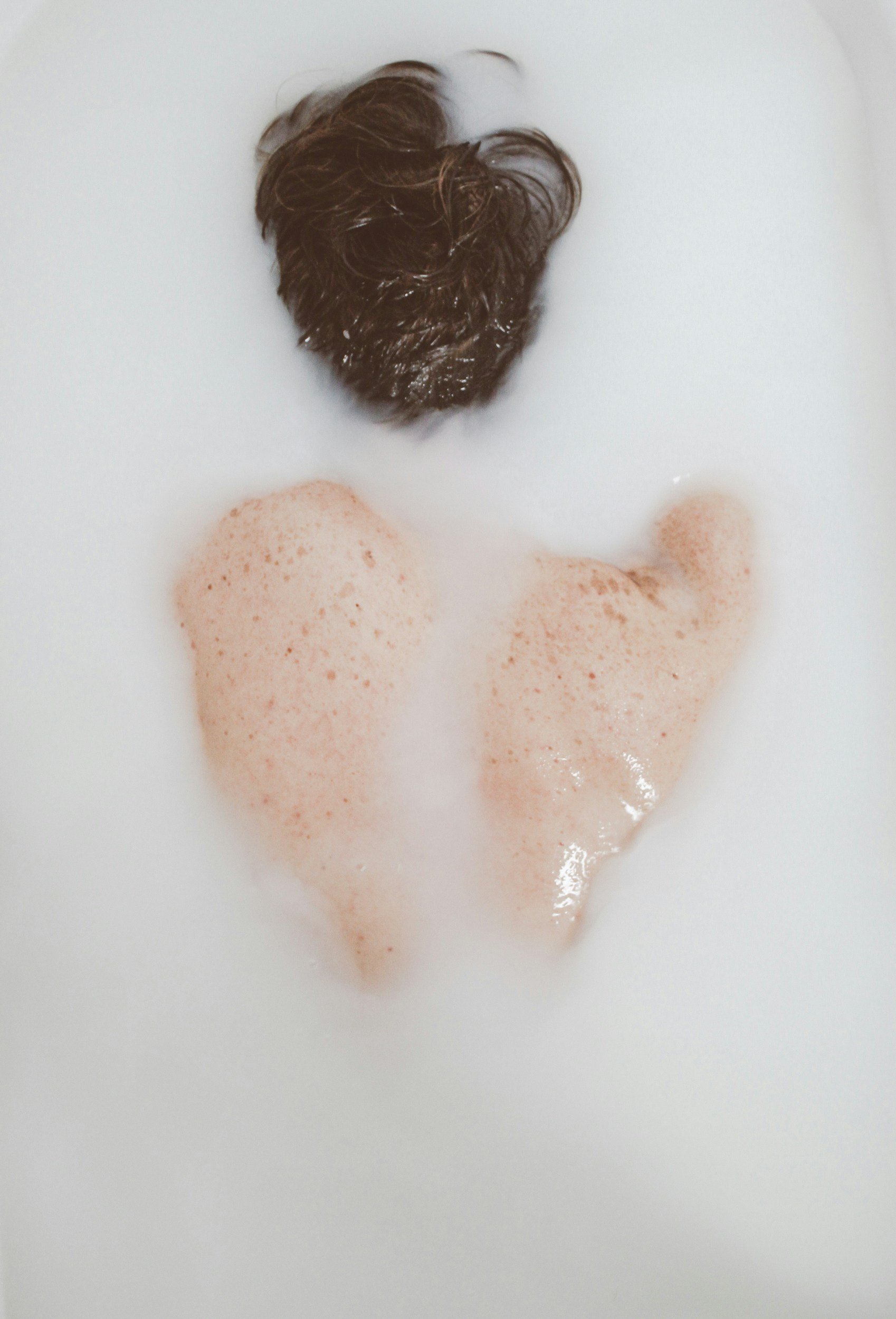
Inner Beauty
"Inner Beauty" is a poignant and sharply critical poem that delves into the subtle yet profound cruelty of perceived pity and the damaging insinuation of intellectual deficiency. The poem functions as a commentary on the subjective nature of beauty, social awkwardness, and the cutting impact of perceived condescension.
The title, "Inner Beauty," immediately establishes an ironic tension with the poem's content. While the phrase typically refers to the value of character over physical appearance, the poem proceeds to explore how physical perceived flaws can lead to judgments that undermine a person's inner worth and intellect.
The poem begins by detailing a specific social interaction: "Moist-brow refusal to stare / burned crueler than heckling ogles / (even spitball thwacks)." The "moist-brow refusal to stare" suggests a deliberate, perhaps uncomfortable, avoidance of direct eye contact, possibly accompanied by an expression of pity or discomfort. The poem immediately establishes that this seemingly benign act of avoidance is perceived as more painful than overt bullying like "heckling ogles" or "spitball thwacks." This highlights the insidious nature of subtle social cues, which can inflict deeper wounds than direct aggression. The use of "burned crueler" underscores the emotional devastation caused by this specific form of non-engagement.
The poem then articulates the reason for this heightened pain: "because the insinuation, / a brazen backhand to all those hours / hidden in library stacks, / was that—as if only retards / sprouted moles—she was too dense / to spot strained mercy." The "insinuation" is the core of the poem's critique. It is described as a "brazen backhand" to the subject's intellectual efforts, represented by "all those hours / hidden in library stacks." This directly links the social snub to an undermining of her intellect. The poem reveals the specific, cruel implication: that her perceived physical flaw ("moles" are implied as the source of the "refusal to stare") is linked to intellectual disability ("as if only retards / sprouted moles"). The most painful sting is the idea that "she was too dense / to spot strained mercy." This means she is not only judged for her appearance but also deemed too unintelligent to recognize the pity being extended to her. The poem thus exposes a profound level of social cruelty, where physical perceived imperfections lead to an assumption of intellectual inferiority, and even a show of "mercy" is delivered with a dismissive arrogance that further demeans the recipient.
social critique, inner beauty, perception, cruelty, pity, intellect, appearance, social dynamics, bullying, insinuation, emotional pain, self-worth, condescension, stigma, intellectualism, judgment.

Chihuahua
"Chihuahua" is a highly polemical and derogatory poem that expresses profound anxiety and contempt regarding perceived shifts in masculinity within contemporary Western society. The poem functions as a critique of evolving gender norms and identity politics, specifically targeting a perceived feminization and weakening of white men.
The title, "Chihuahua," immediately functions as a pejorative metaphor. Chihuahuas are often associated with smallness, perceived weakness, and being overly pampered or "cute," which directly aligns with the poem's critique of contemporary masculinity. This sets a tone of disdain and mockery.
The poem begins by listing what it perceives as the insidious influences contributing to this perceived decline: "Microplastics and soy, / the expanding creep of what / masculine traits count as toxic—". "Microplastics and soy" are often cited in certain online subcultures as environmental factors believed to contribute to feminization or reduced male vigor, even if scientifically unfounded. "The expanding creep of what / masculine traits count as toxic" directly attacks the re-evaluation of traditional masculine attributes, suggesting that this redefinition is an overreach that demonizes natural male characteristics.
The poem then accelerates its condemnation, projecting a bleak future: "soon there will be, especially / among self-cucking whites, / enough halfling girlie-men". The phrase "self-cucking whites" is a highly offensive and loaded term, implying a voluntary emasculation and submission, specifically within the white male demographic. "Halfling girlie-men" is a deeply demeaning and dehumanizing descriptor, painting a picture of men who are perceived as weak, effeminate, and diminished. The poem suggests this demographic is growing and is particularly prevalent among white men, linking it to self-inflicted ideological or cultural choices.
The final lines introduce a perverse twist of "respect": "deserving, no matter what / bred them, respect / only the inhumane would withhold." This is deeply ironic. The poem itself has just subjected these "halfling girlie-men" to intense ridicule and dehumanization. The concluding statement, framed as a conditional assertion about withholding respect, subtly flips the condemnation. It implies that these men, despite being anathema to the poem's vision of masculinity, are still human enough to warrant a basic level of respect, withholding which would be "inhumane." However, this is uttered within a context of profound disdain for their existence, creating a complex and unsettling satirical paradox. The poem's "respect" is offered with a cynical, almost disgusted, concession, underlining the poem's core argument that such men represent a degenerate form of masculinity.
masculinity, gender norms, identity politics, social critique, polemic, dehumanization, white male, feminization, satire, contemporary culture, toxicity, emasculation, pejorative, irony.
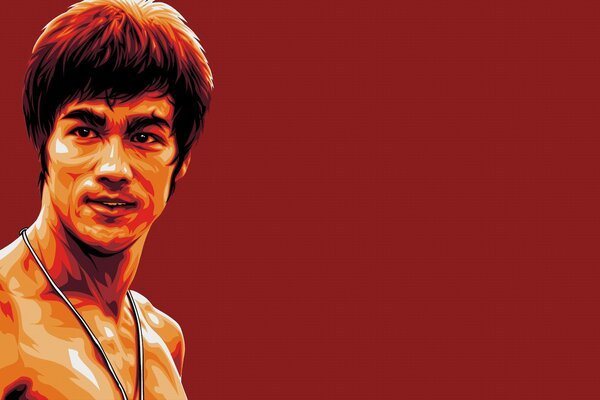
Pushups on Water
"Pushups on Water" is a satirical poem that critiques the exaggerated and often mythical reverence surrounding popular figures, particularly martial arts legends, in contemporary culture. The poem functions as a commentary on the amplification of prowess into absurdity and the potential for hagiography to distort reality over time.
The title, "Pushups on Water," immediately sets a tone of hyperbole and impossibility. It conjures an image of a feat that defies physical laws, signaling the poem's engagement with exaggerated abilities.
The poem proceeds by listing several increasingly outlandish claims attributed to martial arts icon Bruce Lee: "Bruce Lee could do / a layaway one-inch poke / where you die / a hundred steps later / or midair dash too fast / for film." These claims, though rooted in actual martial arts lore (like the one-inch punch), are presented in an exaggerated, almost folkloric manner. The phrase "layaway one-inch poke" adds a touch of absurd domesticity to the deadly force, while "midair dash too fast / for film" pushes the ability beyond verifiable reality, into the realm of pure myth. The parenthetical "or, still absurd, / even just tap out / Royce Gracie" introduces a contemporary martial arts figure, implicitly mocking the tendency to project Lee's abilities onto hypothetical modern-day victories, even against a legend of a different era and discipline. The poem establishes that "so many today swear" these impossible feats are true, highlighting a collective credulity.
The poem's central question, "what / immaculate conceptions / might we halo him with / after centuries?", delivers its core satirical punch. The phrase "immaculate conceptions" is a religious term, here used sacrilegiously to imply that over time, legendary figures are not just admired but deified, imbued with divine or supernatural qualities born of unquestioning belief. The poem suggests that if such absurd claims are already accepted after a relatively short period, the future holds even greater, more fantastical glorifications. It critiques the human tendency to mythologize, creating a hagiographic distance that replaces verifiable reality with fantastical narratives, driven by admiration that borders on uncritical reverence.
Satire, Bruce Lee, martial arts, legend, myth-making, hagiography, hyperbole, cultural critique, hero worship, exaggeration, popular culture, critical thinking, deification, contemporary poetry.
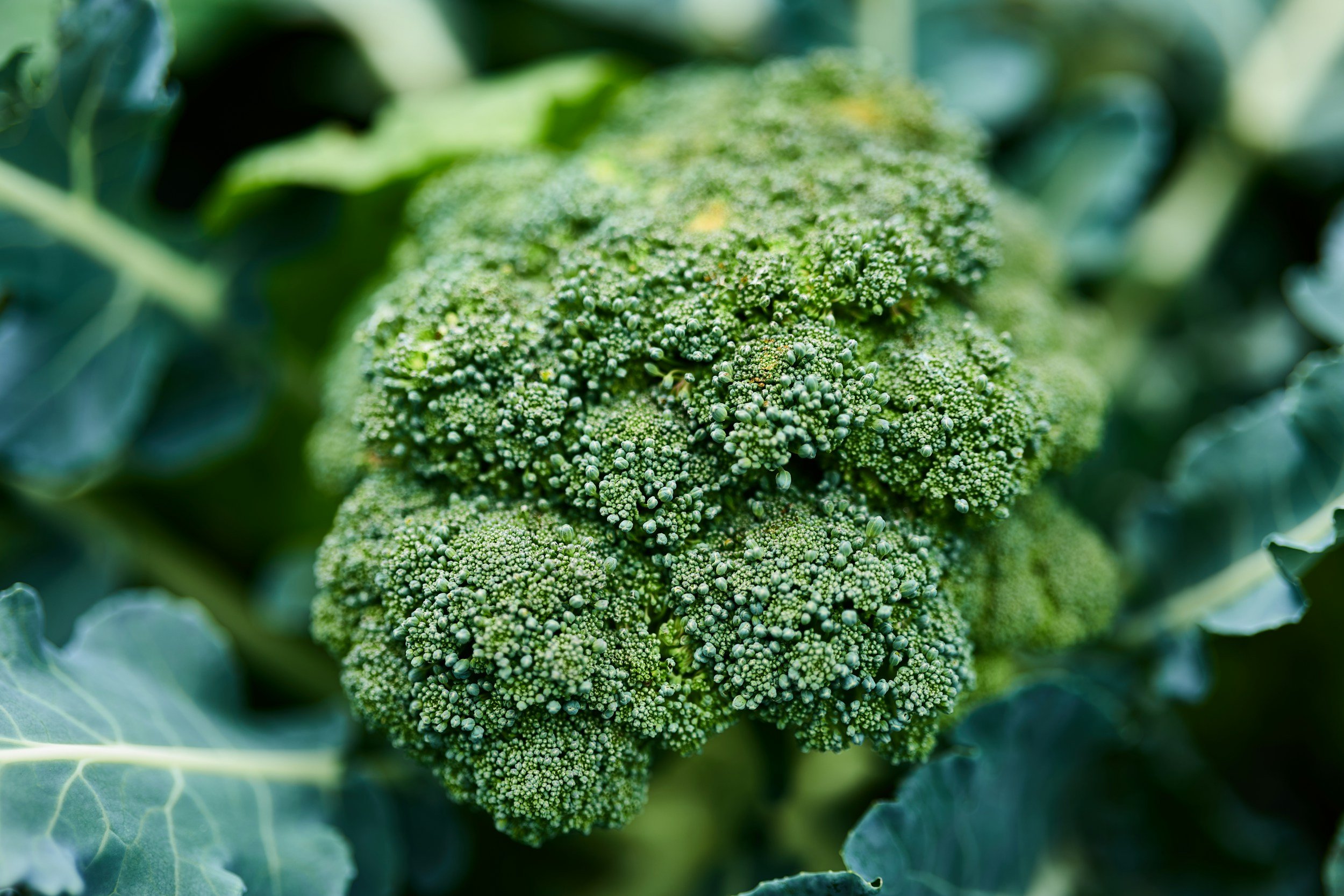
As if Goethe Once Ate Up a Black Queen’s Mic Time
"As if Goethe Once Ate Up a Black Queen's Mic Time" is a sharply satirical and polemical poem that critiques contemporary intellectual and cultural trends, particularly the perceived anti-intellectualism and identity-driven rejections of canonical Western literature. The poem argues that the dismissal of "great literature" as "toxic" serves as a convenient "excuse" for a broader cultural illiteracy.
The title itself is a highly provocative and hyperbolic metaphor. It juxtaposes the revered German literary figure Goethe with "Black Queen's Mic Time," a phrase that immediately evokes modern cultural spaces, particularly those focused on marginalized voices and issues of representation and equity. The implied scenario—Goethe "eating up" mic time—satirizes the idea of historical Western figures somehow monopolizing contemporary discourse or overshadowing other narratives, even in an anachronistic and absurd way. This sets a tone of direct confrontation with current cultural debates.
The poem proceeds to characterize contemporary engagement with "great literature" as a form of "hashtag illiteracy". The simile "Champing on great literature / in our hashtag illiteracy / makes us look like orangutans / with Rubik’s cubes" is a central, derisive image. It suggests that modern individuals, due to their superficial engagement with knowledge ("hashtag illiteracy"), are incapable of comprehending complex intellectual works ("great literature"), making their attempts appear as futile and clumsy as an orangutan trying to solve a Rubik's Cube. This paints a bleak picture of intellectual decline.
The poem then introduces a small, beleaguered group: "for the few still fighting to crack / its necromantic nutrition." This phrase imbues "great literature" with a mystical, almost forbidden power ("necromantic nutrition"), suggesting it holds profound, life-giving sustenance that is difficult to access but vital. The reference to "the few still fighting" highlights the perceived marginalization of those who value this intellectual pursuit. The final lines deliver the poem's core satirical argument: "what better TikTok excuse / than to learn the broccoli— / dead, white, male—is toxic?" Here, the poem directly targets the reasons for this abandonment. "TikTok excuse" immediately points to a superficial, trend-driven form of justification. The metaphor of "the broccoli— / dead, white, male—is toxic" is a powerful and cynical summation of how canonical Western works are often categorized and dismissed in contemporary discourse. "Broccoli" implies something inherently good or nourishing but rejected for being unpalatable. The labels "dead, white, male" are presented as the convenient, pre-packaged reasons for deeming this literature "toxic," thus providing an "excuse" for intellectual disengagement rather than genuine effort to "crack its necromantic nutrition." The poem thus skewers what it views as a performative and ideologically driven rejection of the literary canon.
satire, literary criticism, cultural critique, identity politics, anti-intellectualism, literary canon, Western literature, cultural literacy, hashtag culture, TikTok, academic discourse, intellectual decline, performative activism, contemporary poetry.

MADE FOR YOU AND ME 2: hive Being (Stanzas 2017--part 56)
"MADE FOR YOU AND ME 2: hive Being (Stanzas 2017—part 56)" is a complex and often provocative installment within a larger poetic sequence, functioning as a fragmented meditation on contemporary human experience, social critique, and the nature of artistic creation. The poem navigates a diverse array of observations, presenting them as stark, unadorned assertions that challenge conventional thought and expose perceived societal contradictions.
Formally, the poem continues the episodic structure seen in other parts of the "hive Being" series, presenting a series of distinct, often disparate, stanzas or aphoristic observations. This fragmentation creates a disorienting yet compelling reading experience, mirroring the fractured nature of modern existence and the rapid-fire dissemination of information. The language shifts between the visceral and the abstract, the personal and the collective. Enjambment is used to create tension and surprise, forcing the reader to confront unexpected juxtapositions. The absence of a traditional narrative arc or explicit connections between stanzas invites the reader to forge their own links, reflecting the poem's implicit challenge to fixed interpretations.
Thematically, the poem touches upon a wide spectrum of human and societal concerns:
Critique of Authenticity and Performance: Several lines directly question the genuineness of identity and expression. The observation "no longer able to drop the talking points and be who he is" speaks to the performative nature of public personas. Similarly, the line "wielding bogus racist trauma for popularity and excuse to be fat" offers a harsh critique of what the poem views as cynical manipulation of identity for personal gain. The individual who "invent[s] that people hated him / to keep writing well" highlights the complex relationship between external validation, internal motivation, and creative output, suggesting anxiety can sometimes fuel artistry more effectively than praise.
The Nature of Art and Creativity: The poem engages directly with artistic processes and their challenges. The crisis faced by "photographers and writers" with the advent of AI is directly compared to the historical disruption faced by painters with the camera, positing a timeless cycle of technological threat and adaptation in art. The idea that "mass appeal as an artist too early... is an evil omen" serves as a cautionary aphorism against premature success, suggesting it can dull the creative "blade." Conversely, "the writer was inhumane, unlovely, until he picked up the pen" suggests a redemptive or transformative power of writing. The line about scratching "ass" over another writer's face cynically depicts artistic envy and rivalry.
Existential and Philosophical Musings: The poem delves into deeper philosophical questions, such as the nature of reality ("your past would determine your full future only if reality were nothing in excess to you") and the fundamental "prelinguistic why—why / any of it—arose." The observation "if the best shit of your life / did not require at least some strain, / the noose would be the chef’s kiss" offers a dark take on the necessity of struggle for true achievement, implying that ease leads to existential emptiness. The poem also challenges anthropocentric views of nature and divinity, suggesting "the simulacrum of the internet is no less near the source than a walk in the woods / since nothing exceeds nature," and that "our world is no longer so white / that it is bad manners to name / a fine sea-vessel 'ShaNiqua'".
Social and Political Commentary: The poem contains sharp political and social critiques. "Cheers to those covered women who burned alive for not converting" is a direct, albeit stark, acknowledgment of religious persecution. The concept of "smarts are what get over walls, which is why border-keepers should attack smarts" presents a cynical view of border control tactics. The idea of "juries bored enough to impose harsher sentences" offers a bleak commentary on the justice system. "Apes weaponizing ancestral sin when their bloodline began with a slut animal pervert" is a highly transgressive and provocative statement that appears to satirize or invert certain identity-based arguments.
Overall, "MADE FOR YOU AND ME 2: hive Being (Stanzas 2017—part 56)" functions as a sprawling, confrontational canvas of contemporary consciousness. It uses a raw, unvarnished style to explore the tensions between authenticity and performance, the challenges of creation in a rapidly changing world, and the unsettling ironies of modern social and political life.
cultural critique, postmodernism, fragmentation, social commentary, invective, authenticity, performance, artistic creation, technological change, AI, identity politics, moral ambiguity, human nature, philosophy, contemporary poetry.

MADE FOR YOU AND ME 2: hive Being (Stanzas 2017--part 55)
"MADE FOR YOU AND ME 2: hive Being (Stanzas 2017—part 55)" is a sprawling, fragmented, and intensely provocative installment in a series that functions as a hyperrealist cultural commentary and invective. The poem navigates a vast landscape of contemporary anxieties, moral ambiguities, and societal pathologies, often employing shock and juxtaposition to expose perceived hypocrisies and ironies.
Formally, the "poem" is a relentless barrage of disconnected observations, statements, and shocking vignettes, presented in a list-like, unpunctuated progression. This formal fragmentation mirrors the thematic chaos it depicts. The absence of traditional poetic structure amplifies the sense of an unfiltered download of consciousness, a cacophony of modern disquiet. The syntax is largely declarative and often blunt, contributing to a sense of direct, almost accusatory address. The constant and jarring shifts in subject matter—from religious critique ("the most violent religion is the one that claims to be the final revelation") to personal vices ("crack rock for the stillborn-labor pains") to cultural trends ("trans-inclusive coloring book")—create a profoundly disorienting effect. This formal disarray is a deliberate choice, reflecting a world where coherence is elusive and meaning is perpetually contested. The deliberate use of highly offensive and controversial statements is a key rhetorical strategy, designed to provoke and shock the reader into confronting uncomfortable truths or to expose what the poetic voice perceives as societal absurdities.
Thematically, the poem is a brutal exploration of moral decay, hypocrisy, and the pathologies of contemporary society. It relentlessly targets various aspects of modern culture, including:
Critique of Religious Dogma and Spirituality: The poem challenges claims of ultimate truth in religion ("the most violent religion is the one that claims to be the final revelation"), and cynically observes human tendencies in spiritual belief ("all other things being equal, trust / the culture whose gods look / almost nothing like their envisioners").
Human Nature and Primal Impulses: It delves into darker aspects of human behavior, from the capacity for cruelty and moral compromise ("the hotel bellhop doorman—expected... never to open the door for those of his kind") to the universality of aggression ("rap battles no doubt were occurring way before the kilted men were rhyming"). It also touches on existential questions about purpose ("prelinguistic why—why / any of it—arose").
Addiction and Self-Deception: The poem starkly portrays the grip of addiction and the self-delusion involved in coping ("crack rock for the stillborn-labor pains," "the bottle-snuggle workarounds"). It also touches on deeper psychological mechanisms, like performance anxiety disguising itself as dedication ("sacrificed his life to sculpting, but perhaps he really sacrificed it to performance anxiety").
Critique of Contemporary Identity Politics and Social Trends: The poem directly engages with contentious topics surrounding gender identity, race, and victimhood culture. Examples include the unsettling "trans-inclusive coloring book: / unicorn with top surgery scars," and the activist celebrating "the first male-female trans pregnancy: abortion being... a rite of passage into womanhood." It also challenges notions of racial politeness ("our world is no longer so white / that it is bad manners to name / a fine sea-vessel “ShaNiqua”").
The Nature of Art and Creative Process: The poem briefly touches upon the internal struggles of writers ("the message “stop thinking while you write”... was a cure for his") and the varying expectations of readers regarding "soft" versus "hard areas" in literature.
The poem, presented by an unsparing poetic voice, constructs a bleak vision of a "hive Being"—a collective human existence characterized by shocking transgressions, intellectual dishonesty, and a pervasive sense of malaise, where traditional values and distinctions are eroding under the weight of perversion and societal pressures. The final image of "unconditional trust" being equated with "fecal matter" after an act of domestic violence provides a profoundly cynical capstone, suggesting that even the purest forms of loyalty are tainted and messy.
cultural critique, postmodernism, fragmentation, moral decay, social commentary, invective, shock value, taboos, contemporary issues, identity politics, transgressive, addiction, human nature, religion, gender identity, race, urban existence.

True Crime in a Clown World
"True Crime in a Clown World" is an intensely dark, satirical poem that offers a scathing critique of what it perceives as the distorted moral sensibilities and performative empathy prevalent in the "safe-space era," particularly within the true crime genre. The poem argues that contemporary cultural norms can lead to a scoliotic moral prioritization, where profound human suffering is desensitized or overlooked, while selectively chosen traumas or more palatable forms of victimhood receive undue emphasis.
The title, "True Crime in a Clown World," immediately sets a cynical and unsettling tone. "True Crime" points to the genre, while "Clown World" suggests a reality that is absurd, chaotic, and fundamentally disordered, implying a breakdown of genuine ethical engagement and a triumph of performative or inverted values. This context establishes the "safe-space era" as a landscape of moral paradox.
The poem unfolds with a brutal and graphic enumeration of extreme violence: "Vulva stabbed to meat-mallet mush; / neck oyster-shucked / to bone; spine knee-snapped / like a yard branch; eye sockets / goon hamstered (three / extra-cheese deliveries of edging)—". This series of visceral, almost surgical descriptions details horrific bodily harm with chilling detachment. The imagery of "meat-mallet mush," "oyster-shucked," and "knee-snapped like a yard branch" conveys a dehumanizing brutality. The phrase "eye sockets / goon hamstered (three / extra-cheese deliveries of edging)" is particularly disturbing, blending extreme violence with the mundane, almost absurd, language of commercial transactions and sexualized internet culture ("edging"). This juxtaposition heightens the sense of a world where horror is casually consumed, rendered into content.
The poem's central satirical thrust, which explicitly targets the "scoliotic moral sensibilities" of the "safe-space era," arrives with the final lines: "all this, yet the podcaster pauses / for her one trigger warning: / the victim’s turtle starved." This abrupt and jarring shift is the poem's core critique. After detailing an extreme, multi-faceted act of human violence with unsparing clarity, the single "trigger warning" is reserved for the death of a pet. This stark ironic displacement of empathy and concern critiques what the poem perceives as a performative, misguided, or desensitized approach to trauma in media. It suggests that in this "Clown World," while genuine violence is detailed without explicit warning, the "cherrypicked trauma" of a starving turtle (a more conventionally sympathetic or culturally sanctioned form of suffering) is meticulously flagged. The poem implicitly connects this selective empathy to the broader cultural demands for "honoring not only indigenous lands and trans bravery" (as alluded to in the summary's "safe-space era" context), suggesting that while these causes are acknowledged, the immediate, visceral horror of the crime itself is either overlooked or deemed less worthy of caution than a specific, less human-centric, form of victimhood. The poem thus argues that such narratives, despite their graphic content, ultimately fail to engage with the actual human tragedy in a morally consistent way, instead prioritizing superficial or ideologically aligned forms of empathy.
true crime, satire, moral sensibilities, safe space, trigger warning, empathy, violence, normalization, cultural critique, hypocrisy, irony, selective trauma, desensitization, contemporary media, performative activism, social commentary.

Summer Communion
"Summer Communion" is a deeply evocative poem that explores themes of elemental connection to nature, interspecies empathy, and echoes of historical experience through a series of vivid, often challenging similes. The poem functions as a meditation on shared sensation and a provocative attempt to draw parallels between contemporary acts of communion and historically resonant experiences, inviting readers to consider universal aspects of life and hardship.
The title, "Summer Communion," establishes a tone of unity and connection to nature's cycles. The poem then unfolds in three distinct stanzas, each presenting a seemingly simple "summer" activity that is then enriched by a profound and sometimes unsettling historical or biological comparison.
The first stanza, "Pick burrs and ticks off your pet / in hunched lullaby / like our groom-bent chimp moms," establishes an immediate connection to primal caregiving. The act of tending to a pet is framed with tenderness, elevated to a "hunched lullaby," suggesting an intimate, almost ritualistic bond. The simile "like our groom-bent chimp moms" universalizes this act of meticulous care, drawing a direct line to primate behavior and highlighting a shared, instinctual bond across species in nurturing.
The second stanza introduces a powerful historical parallel: "chill the watermelon in the creek swirl / for electrolyte blessings / like cotton-sun slaves." The image of cooling watermelon for refreshment is initially simple and pastoral, depicting it as a natural "electrolyte blessing." The comparison "like cotton-sun slaves" directly links this act of seeking relief from heat to the immense physical labor and suffering endured by enslaved people under the sun. This simile functions to evoke a sense of shared human experience with elemental hardship and the universal need for basic sustenance and respite.
Finally, the third stanza continues this pattern: "hug a big stone to moon-bounce / along the swim-hole floor / like fire-lung Indian kids." The act of playing in a swim-hole, "hugging a big stone to moon-bounce," suggests childlike joy and buoyancy in nature. This is then strikingly compared to "fire-lung Indian kids." This simile calls forth images of the historical suffering of Indigenous children, possibly alluding to diseases like tuberculosis (implied by "fire-lung") or the profound hardships of forced displacement and cultural loss. This comparison seeks to forge a deep, almost ancestral, resonance between a contemporary, innocent act and past struggles for survival and joy within nature's embrace.
Overall, "Summer Communion" is a poem that uses bold and challenging parallels to expand the scope of empathy and historical connection. It invites the reader to find common ground in human experience, even across vast historical, cultural, and species divides, prompting a reconsideration of shared vulnerabilities, elemental joys, and universal struggles for survival and comfort within the natural world.
empathy, historical resonance, universal experience, human-animal bond, nature connection, slavery, Indigenous history, shared suffering, solace, summer, communion, similes, elemental, human condition.
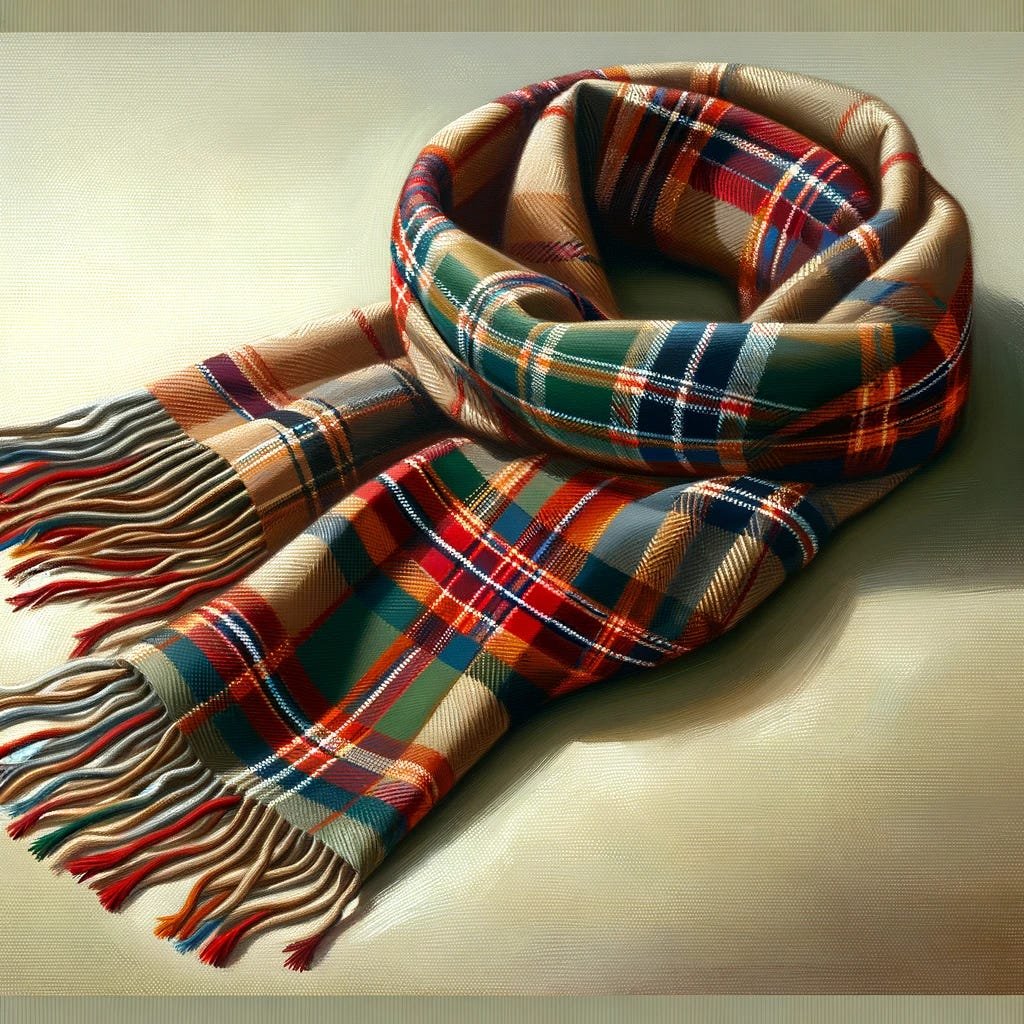
Tartan Scarves, the New Klan Hood
“Tartan Scarves, the New Klan Hood" is a highly polemical poem that critiques specific aspects of contemporary racial discourse and identity politics, particularly within academic and literary contexts. The poem argues that certain progressive stances, far from being beneficial, actually cause harm to the very groups they aim to protect, and even enable behaviors that undermine their own stated premises.
The title, "Tartan Scarves, the New Klan Hood," is a deliberately provocative and inflammatory metaphor. "Tartan scarves" can symbolize progressive or intellectual circles (perhaps invoking a bohemian or academic aesthetic), which the poem starkly equates with the "Klan Hood"—a potent symbol of white supremacy and racial oppression. This hyperbolic comparison immediately signals the poem's intent to invert conventional moral hierarchies and accuse certain progressive ideologies of functioning in a similarly oppressive manner, albeit through different means.
The poem establishes its central argument by focusing on the supposed harms of restricting critical engagement: "Nonblacks forbidden to judge / a black author’s characters or plot / even in college harms / blacks as it is." This directly targets the concept of "identity-based critique," where only members of a specific racial group are deemed authorized to critique art produced by that group. The poem asserts that this practice, even within an educational setting like "college," ultimately "harms blacks," suggesting it stifles intellectual rigor, honest feedback, and genuine growth.
The critique then sharpens, moving from literary judgment to social behavior: "yet white spoiling / breeds black brats so entitled / they stand likeliest to do / precisely what proves / the trembling-prey pretense / for that spoiling a lie: defying cops." Here, the poem introduces the concept of "white spoiling"—a perceived excessive indulgence or uncritical affirmation by white individuals. This "spoiling," the poem argues, "breeds black brats so entitled" that they are prone to actions (specifically "defying cops") which contradict the "trembling-prey pretense." This "pretense" refers to the idea that black individuals are perpetually vulnerable and oppressed, a notion that the poem suggests is undermined when those who benefit from "spoiling" engage in defiant behavior. The poem posits a cynical cause-and-effect: the very indulgence meant to affirm victimhood ultimately produces a behavior (defiance) that, in the poem's view, exposes the "pretense" of constant vulnerability as a lie, thus serving to justify the initial "spoiling." This presents a highly contentious argument, directly challenging notions of systemic racism and victimhood in favor of a focus on individual agency and the perceived negative consequences of certain progressive pedagogical or social approaches.
identity politics, critical race theory, social commentary, polemic, racial critique, white spoiling, entitlement, victimhood culture, police defiance, academic freedom, literary criticism, racial dynamics, controversy, social justice.

Dandelion
"Dandelion" is a provocative and highly critical poem that uses botanical metaphor to express a complex and contentious argument about identity politics, specifically questioning whether movements that initially resist dominant power structures risk becoming complicit in new forms of control. The poem functions as a polemical commentary, challenging the perceived trajectory of certain "trans" movements through a stark and unsettling analogy.
Formally, the poem is structured as a rhetorical question, immediately engaging the reader in its provocative premise. The initial lines, "However lovely it is to see / trans flowers (transgender, / transracial, transspecies) wriggle / some breathing room / against the stranglehold of the man," introduce the "trans flowers" as initially sympathetic entities. The parenthetical list explicitly defines the scope of "trans" identities, indicating a broad engagement with contemporary identity discourse. The phrase "wriggle some breathing room / against the stranglehold of the man" acknowledges the initial, positive struggle against an oppressive "man"—a generalized symbol of traditional, dominant power. The enjambment guides the reader through this setup, creating a sense of a nuanced initial acceptance. The poem then pivots sharply with the central question: "do they not merit Roundup / once coopted / as one of his sundry weeds: / censors, book burners, policers of tongues?" The transition from "lovely" to "Roundup" signifies a dramatic shift in judgment. "Roundup," a herbicide, serves as a harsh metaphor for eradication or suppression. The poem's central claim is that if these "trans flowers" become "coopted" by the very system they resisted, turning into agents of control—specifically "censors, book burners, policers of tongues"—then they lose their initial legitimacy and warrant a similar harsh treatment as the oppressive "man" they once fought.
Thematically, the poem delves into the complexities of power dynamics within social movements and the potential for new forms of oppression to emerge from liberation efforts. The metaphor of the "dandelion" is crucial; while often seen as a resilient, defiant plant, it can also be considered an invasive "weed" by those seeking to maintain order. The poem suggests that movements, even those fighting for legitimate "breathing room," risk becoming instruments of control themselves once they gain power or become "coopted." The list of "sundry weeds" directly links these coopted "trans flowers" to historically oppressive behaviors: censorship, book burning, and policing of speech. This implies a cyclical view of power, where yesterday's oppressed can become tomorrow's oppressor, adopting the tactics of the "man" they initially resisted. The poem challenges the inherent moral righteousness sometimes attributed to marginalized groups, suggesting that their actions, if they mirror the suppressive tactics of the dominant power, should be subjected to the same scrutiny and potential condemnation. It provokes a discussion on whether the means of achieving liberation can themselves become illiberal, leading to a new "stranglehold" on expression and thought.
Meta Description:
A polemical poem uses the "dandelion" metaphor to question whether "trans flowers" (transgender, transracial, transspecies) fighting oppression risk becoming "coopted" and acting as "censors, book burners, policers of tongues," thereby meriting "Roundup" in a critique of power dynamics within social movements.
identity politics, social movements, power dynamics, oppression, liberation, censorship, political correctness, cancel culture, polemic, metaphor, "trans" identities, gender identity, race, cooptation, resistance, critical theory.

Action Jackson
"Action Jackson" is an extraordinarily visceral and profoundly disturbing poem that plunges the reader into a tableau of urban decay, extreme human transgression, and the unsettling dynamics of public reaction. It functions as a transgressive social commentary, not merely presenting a scene, but interrogating the complex interplay of human depravity, immediate sensory repulsion, and the pervasive anxieties that shape social interaction within confined spaces. The poem's confrontational power stems from its unsparing detail and its willingness to expose the raw, often unacknowledged, undercurrents of urban life.
Formally, the poem's concision is central to its impact; with short, clipped lines and strategic enjambment, it builds an almost unbearable tension. The title, "Action Jackson," initially creates a jarring ironic dissonance, brutally subverted by the horrifying inertia of the scene. The opening lines, "He humps the hobo corpse / on the subway, natural as a bunny—," are designed for maximum shock, the comparison to a "bunny" unsettlingly normalizing a grotesque act. The poem meticulously details the perpetrator's actions, emphasizing a perverse, almost clinical, engagement: "he hooks the leg / to ogle every in and out." The chilling interjection, "Sshh," not only signifies a desire for quiet but also implicates the perpetrator in a twisted intimacy with both his victim and the encroaching public, a demand for their complicit silence.
The thematic core resides in the reactions of the "fresh boarders." The poem powerfully illustrates the immediate, visceral human response to such a scene: the passengers' desire to move into "cars / free of clobbered-colon stank" directly demonstrates that avoiding overwhelming olfactory discomfort is the overriding, primary motivation for their immediate physical movement. While they also possess an "aversion to looking racist," the poem explicitly shows them actively "push[ing] past" this social anxiety. This indicates that their impulse to escape the repulsive sensory experience unequivocally trumps their concern about how they might appear socially. They choose to prioritize immediate physical relief, offering "excuses" as a secondary coping mechanism, rather than engaging with the horrifying act or remaining in the uncomfortable presence.
This reveals a bleak commentary on the urban condition: a space where extreme acts can occur openly, and where individuals, even when confronted with the unthinkable, may navigate their escape by prioritizing their most immediate, basic physical needs, rationalizing their non-intervention through social anxieties. "Action Jackson" is ultimately a stark, unflinching mirror held up to the dark, often ignored, underbelly of human behavior and societal dysfunction.
necrophilia, transgressive poetry, social commentary, urban decay, moral ambiguity, bystander effect, public reaction, taboo, social anxiety, olfactory discomfort, sensory revulsion, dehumanization, violence, grotesque, human behavior, prioritization of motives.

Logical Palsy or Will to Power?
"Logical Palsy or Will to Power?" is a highly polemical poem that critiques what it perceives as a selective and self-serving application of anti-border ideology. The poem frames a contemporary debate around immigration and land claims, arguing that a particular ideological stance, seemingly rooted in universal principles, ultimately reveals itself as a naked exercise in power.
Formally, the poem adopts a confrontational and interrogative structure. It begins with the direct address of "bullhorns" bleating slogans like "“Borders,”... “are bogus and immoral / to police,” hence “no Mexican, / no migrant, is illegal”—". This sets up the initial premise, presenting a common rhetorical position regarding open borders and the illegality of human movement. The use of quotes and "bullhorns" suggests a public, activist discourse. The poem then introduces a "gotcha" question, designed to expose perceived hypocrisy: "So how can you say / whites stole this land?" This question directly challenges the consistency of the initial anti-border stance when applied to historical territorial claims. The climax of the poem comes with the "reply" that "spreadeagles (speculum / cranked) their power ploy: / “The borders are white.”" This response is depicted as both revealing and aggressive. The imagery of "spreadeagles" and "speculum cranked" is visceral and violent, suggesting a forced exposure or a brutal unveiling of an underlying motive.
Thematically, the poem fundamentally questions the coherence and motivations behind certain contemporary political arguments. The title, "Logical Palsy or Will to Power?", encapsulates the core tension: is the inconsistency simply a "logical palsy" (a cognitive or intellectual failure), or is it a deliberate "will to power" (a strategic manipulation of arguments to gain dominance)? The poem argues for the latter, portraying the "The borders are white" retort not as a logical extension of the initial anti-border stance, but as a calculated "power ploy." It suggests that the same borders deemed "bogus and immoral" when limiting migration are suddenly acknowledged and weaponized when they serve a narrative of historical grievance and racialized land claims. This highlights a perceived selective application of principles, where the very concept of "borders" shifts its moral valence depending on who is being accused or who stands to benefit. The poem critiques what it sees as a strategic inconsistency, where the rhetoric of liberation from borders is deployed to achieve specific ends related to historical redress, revealing an underlying agenda of power acquisition rather than consistent ideological adherence.
identity politics, borders, immigration, land claims, political critique, rhetoric, hypocrisy, power dynamics, logical inconsistency, social commentary, polemic, contemporary issues, race, historical grievance, activism.

White in the Slush Pile
"White in the Slush Pile" is a poignant and cynical poem that explores the anxieties of an artist grappling with perceived obsolescence and the shifting landscape of cultural value, particularly within the literary world. It functions as a lament for a perceived decline of "high literature" and a critique of a cultural shift towards more visually-driven forms of communication, experienced through the lens of a male, white writer.
Formally, the poem employs a concise structure with evocative imagery, building its emotional impact through a progression of increasingly desperate observations. The title, "White in the Slush Pile," immediately signals the poem's central themes: "slush pile" (a common publishing term for unsolicited manuscripts, often implying rejection or low value) juxtaposed with "White," explicitly racializing the perceived marginalization. This sets a tone of grievance and perceived victimhood. The opening lines, "His vocation was high literature / and yet, if that plus his skin / were not alienating enough / to prove divine spite," establish the protagonist's identity and his belief that his dedication to a particular art form, combined with his racial identity, is actively working against him, almost as if by "divine spite." The enjambment throughout creates a sense of a spiraling descent into despair. The core of his anguish is captured in a powerful and disturbing simile: "he watched— / like a mother frozen / as zoo apes dislocate her baby / with Barbie-limb ease— / reading die before his eyes: / instruction books now all pictures." This graphic image of a mother helplessly witnessing the brutal dismemberment of her child, performed with effortless ease by "zoo apes," functions as a visceral metaphor for the protagonist's perception of the death of "reading" and, by extension, "high literature." The "Barbie-limb ease" emphasizes the trivialization and perceived barbarity of this cultural shift. The final line, "instruction books now all pictures," provides a stark and somewhat reductive symbol of this visual dominance, reinforcing the perceived decline of text-based knowledge and engagement.
Thematically, the poem delves into the anxieties surrounding cultural change, perceived intellectual decline, and the shifting power dynamics within creative fields. The protagonist, embodying a traditional literary vocation and a racial identity often associated with historical privilege, experiences this shift as a personal affront and a cosmic injustice. The poem critiques what it perceives as the devaluation of "reading" and complex textual engagement in favor of simplistic, visual media. This is framed not as a natural evolution, but as a "death" of an art form, a brutal and indifferent act. The emotional intensity of the "mother" simile elevates this professional grievance to a primal, existential horror. The poem implicitly questions the place of traditional literary forms and the role of their practitioners in a rapidly evolving cultural landscape, where the value system is seemingly being redefined against them.
high literature, cultural change, obsolescence, literary anxiety, reading, visual culture, identity politics, white male, perceived victimhood, cultural critique, artistic value, contemporary poetry, intellectual decline, despair, alienation.

Lemonade Aikido
"Lemonade Aikido" is a biting satirical poem that launches a sharp critique against what it perceives as the opportunistic and deeply cynical appropriation of social justice movements, particularly #MeToo, within celebrity culture. The poem dissects a specific instance of hypocrisy, where an individual cynically reframes a past event to align with shifting cultural narratives for personal gain.
Formally, the poem is concise, employing sharp juxtaposition and highly charged, often unflattering, imagery to convey its satirical edge. The title itself, "Lemonade Aikido," is a clever oxymoron. "Lemonade" refers to the idiom "If life gives you lemons, make lemonade," signifying the act of transforming an adverse or challenging circumstance into an advantage or benefit. "Aikido" is a martial art focused on redirecting an opponent's force. This title immediately frames the poem's central argument: a seemingly defensive or empowering action (like joining #MeToo) that is, in fact, a strategic redirection of external outrage for self-serving ends, turning a potentially negative past into a perceived triumph. The poem sets its scene "In the grand theater of fake fury / over the president’s hot-mic boast / that he “grabs ’em / by the pussy.”" This direct reference to a widely publicized political scandal establishes the specific cultural moment the poem is dissecting, providing the backdrop for the individual's performative shift.
The crucial pivot occurs as the "she" figure (implied to be a celebrity or socialite) "recast / her soirée flex—worn like Cruella fur / over years of milking / envy from starstruck primates— / as mascara-tear #MeToo / ripe with anal embellishment." The poem’s critique here is profoundly layered. The "soiree flex" is revealed to be a specific past behavior: bragging for years about an intimate, albeit crude, encounter with power (being grabbed "by the pussy"). This "flex" was "worn like Cruella fur," signifying a cruel, predatory embrace of status derived from proximity to power, used "over years of milking envy from starstruck primates." This establishes a past cultural context where such an encounter, though demeaning, was leveraged for social currency. The poem then exposes the dramatic "recast" of this very same past event. When times changed and such boasts became a "negative," the individual pivoted, transforming her "flex" into a "mascara-tear #MeToo" narrative. The "mascara-tear" explicitly suggests an inauthentic, performative display of trauma, where tears are literally a product of makeup, not genuine emotion. The final phrase, "ripe with anal embellishment," is a particularly crude and provocative detail, pushing the satire into the realm of the grotesque by implying a fabricated or grotesquely exaggerated nature to the claims of trauma, or a perversion of the movement's intent for sensationalism and attention.
Thematically, the poem delves into the intersection of celebrity, profound hypocrisy, and the perceived commodification of social justice movements. It critiques the notion that all expressions of outrage or victimhood are authentic, arguing instead that some are calculated maneuvers to "make lemonade" from public crises and shifting social norms. The central argument is that the "she" figure engages in a form of "Lemonade Aikido," strategically redirecting what was once a status-enhancing boast into a narrative of trauma when the cultural tide turns, ultimately enhancing her own social standing or "flex." The poem challenges the audience to look beyond surface appearances and question the motivations behind public displays of solidarity or victimhood. It suggests that individuals, particularly those accustomed to a life of curated image and "milking envy," can cynically appropriate the language and emotional resonance of powerful movements like #MeToo, turning them into a "grand theater of fake fury" for personal advantage. This raises broader questions about the authenticity of activism in the digital age, the fluid nature of "truth" in performative contexts, and the potential for genuine causes to be co-opted and perverted for individual gain.
satire, activism, performative, #MeToo, celebrity culture, hypocrisy, social commentary, opportunism, manipulation, outrage, gender politics, contemporary issues, authenticity, commodification, political commentary, moral relativism.

Pima People Penning Pueblo Poems
"Pima People Penning Pueblo Poems" is a polemical poem that critically engages with contemporary identitarianism and the "OwnVoices" movement, arguing that its application is often a "Machiavellian power grab" rooted in "self-serving selectivity." The poem functions as a critique of identity politics, specifically challenging the perceived hypocrisy and inherent limitations of restricting artistic representation based solely on identity markers.
Formally, the poem is concise and uses a direct, almost accusatory tone, building its argument through a series of conditional statements and logical extensions. The title, "Pima People Penning Pueblo Poems," immediately sets up a seemingly unproblematic scenario of "OwnVoices" representation, implying a culturally specific and authentic creation. However, the poem's opening lines introduce the central critique: "Were it not at root / a Machiavellian power grab / of self-serving selectivity, #OwnVoices / identitarianism would gag / not just white from writing about black." This immediate negation of the perceived altruism of the #OwnVoices movement, labeling it a "power grab," is the poem's foundational assertion. The hashtag "#OwnVoices" grounds the critique firmly in current discourse. The enjambment throughout maintains a brisk, argumentative pace. The poem then extends its argument to a more radical and unsettling conclusion: "but also you—even / if black, queer, cripple— / from writing (with your memory / contraband) about past you." This is the poem's core rhetorical maneuver. By including individuals who possess multiple marginalized identities ("black, queer, cripple"), the poem attempts to demonstrate what it portrays as the inherent absurdity and ultimate self-defeating nature of rigid identity-based restrictions.
Thematically, the poem fundamentally questions the logic and ethical implications of identity essentialism in artistic production. It posits that if "OwnVoices" principles were applied consistently and without "self-serving selectivity," they would logically lead to an impossible scenario: even an individual with a marginalized identity would be "gag[ged]" from writing about their own past self if that past self is somehow distinct or "contraband" from their present identity. This serves as a reductio ad absurdum argument, aiming to expose what the poem perceives as the fundamental flaw in strictly limiting representation based on fixed identity categories. The phrase "memory / contraband" is particularly potent, suggesting that the very act of personal remembrance and artistic exploration across one's own life experiences could be deemed illegitimate if subjected to an overly rigid identitarian framework. The poem thus argues that true artistic freedom and authentic expression are inherently stifled when constrained by such narrow definitions, proposing that the ultimate outcome of such movements, if followed to their logical extreme, would be a universal gagging of creative exploration, even of the self.
identity politics, OwnVoices, identitarianism, artistic freedom, representation, censorship, cultural critique, polemic, essentialism, self-serving, hypocrisy, memory, contraband, reductio ad absurdum, literary theory, contemporary poetry.

Kardashian Razor
"Kardashian Razor" is a poem that critically examines the interplay of globalized aesthetic standards, particularly within explicit media, and their impact on notions of authenticity, diversity, and cultural distinctiveness. The poem implicitly poses a question regarding the durability of specific, non-Western aesthetic forms against a perceived dominant, homogenizing influence.
Formally, the poem's concise structure and use of evocative, contrasting imagery contribute to its critical argument. The title, "Kardashian Razor," functions as a potent cultural signifier, immediately evoking contemporary Western beauty ideals often associated with a highly curated and specific aesthetic, implying a process of shaping or removal ("Razor"). This establishes the dominant cultural force that the poem interrogates. The opening lines, "Armenian porn pussy remains / overgrown (thigh creep / like Bluto’s jaw)," introduce a specific aesthetic standard characterized by "hirsute-feral" qualities, representing a form of raw, untamed, or unrefined sexuality. The simile "like Bluto's jaw" further emphasizes this primal, perhaps even aggressively natural, aspect. This initial image represents a "transportive, exoticism-preserving standard" that the poem suggests is in tension with the prevailing aesthetic. The central inquiry of the poem is then articulated: "but how long / until the gooseflesh monocrop... kills web travel / to pre-Soviet hearths..." The "gooseflesh monocrop" serves as a powerful metaphor for a standardized, artificially perfected, and potentially mass-produced aesthetic, specifically in a sexual context, aligning with the "infant-bald standard" of Western hegemony. The parenthetical "already in HD on war-torn / goat farms" extends the critique to the global reach and potentially exploitative origins of this pervasive aesthetic, suggesting its widespread dissemination even in unlikely locales. This "monocrop" is depicted as an encroaching force that threatens to "kill web travel" to alternative, culturally distinct forms of experience. The poem expresses a longing for a past represented by "pre-Soviet hearths / of creaky woodcraft where / we can suckle iron-fierce maternity?" This final imagery suggests a return to a more fundamental, less mediated, and culturally specific form of origin or connection—one characterized by a rugged, authentic, and "iron-fierce" quality, directly contrasting with the homogenized, "razored" perfection symbolized by the title.
Thematically, the poem engages with the dynamics of cultural hegemony and resistance in aesthetic and sexual domains. It highlights a perceived conflict between a specific "Armenian porn's hirsute-feral standard"—which the poem presents as embodying a particular kind of "exoticism-preserving" and raw beauty—and the "diversity-killing hegemony of the West’s infant-bald standard." The "Kardashian Razor" thus becomes emblematic of a cultural force that seeks to homogenize and alter natural forms to fit a prevailing, mass-produced ideal. The "gooseflesh monocrop" underscores this fear of a singular, dominant aesthetic wiping out variety. The poem interrogates the sustainability of culturally specific expressions of sexuality and beauty when confronted with globally disseminated, technologically enhanced (HD) standards. The yearning for "pre-Soviet hearths" and "iron-fierce maternity" suggests a desire for a return to cultural roots and a more authentic, less commodified or altered, experience of sexuality and connection, implicitly valuing cultural particularity and natural forms over a globalized, uniform aesthetic.
cultural hegemony, aesthetic standards, pornography, authenticity, diversity, globalization, cultural critique, Westernization, homogenization, sexuality, media influence, modern beauty, resistance, exoticism, cultural particularity, bodily aesthetics.

MADE FOR YOU AND ME 2: hive Being (Stanzas 2017--part 54)
"MADE FOR YOU AND ME 2: hive Being (Stanzas 2017—part 54)" is another sprawling, fragmented, and intensely provocative installment in a series that functions as a hyperrealist cultural commentary and invective. Dedicated "to all the kids raped to death," the poem immediately signals its confrontational and disturbing nature, serving as a raw, unfiltered stream of consciousness that dissects contemporary anxieties, moral ambiguities, and societal pathologies. Its power derives from its relentless assault on cherished norms and its willingness to delve into the grotesque and the offensive.
Formally, the "poem" is a relentless barrage of disconnected observations, statements, and shocking vignettes, presented in a list-like, unpunctuated progression. This formal fragmentation mirrors the thematic chaos it depicts. The absence of traditional poetic structure amplifies the sense of an unfiltered download of consciousness, a cacophony of modern disquiet. The syntax is largely declarative and often blunt, contributing to a sense of direct, almost accusatory address. The constant and jarring shifts in subject matter—from horrific sexual acts ("cunnilingus Cosby, slurping comatose jigglers," "adoptive gay couple teaming up for a Mortal Kombat fatality") to critiques of social justice discourse ("blaming obesity on the stresses of racism," "the duty to frame every disparity as proof of systemic oppression") to mundane yet unsettling details ("sniff a dirty diaper long enough and you learn to love it")—create a profoundly disorienting effect. This formal disarray is a deliberate choice, reflecting a world where coherence is elusive and meaning is perpetually contested. The deliberate use of highly offensive and controversial statements is a key rhetorical strategy, designed to provoke and shock the reader into confronting uncomfortable truths or to expose what the poetic voice perceives as societal absurdities.
Thematically, the poem is a brutal exploration of moral decay, hypocrisy, and the pathologies of contemporary society. It relentlessly targets various aspects of modern culture, including:
Sexual Transgression and Abuse: The dedication and explicit lines dealing with rape, pedophilia, and various sexual perversions (e.g., "identifying into rape-crisis centers, where all the prime meat is," "colostomy-hole sex") are central to its shock value and thematic focus on the grotesque.
Critique of Social Justice Narratives: Several lines directly challenge prevailing social justice discourse, particularly regarding racial issues ("blaming obesity on the stresses of racism," "poisoning the black mind with agency-hobbling victim-think") and gender identity ("physicians bowing to self-named gender even when real sex is clinically relevant," "vaginas are magic: passing through... turns a mere bundle of cells into a person only then deserving rights"). These lines aim to provoke by inverting or satirizing what the poetic voice sees as ideological excesses or hypocrisies.
Authenticity and Cynicism: The poem laments the "cringe" verdict on "authentic and sincere and joyful" behavior, suggesting a pervasive cynicism that forces individuals to "closet away whatever single-entendre unguarded sides remain."
Disillusionment and Existential Despair: Themes of a lost future ("the realization that the future... no longer lies ahead of us"), self-deception in addiction ("on cloud nine after a bad binge"), and the overwhelming pressure of choices in late life ("aside from acceptance or suicide or avoidance") contribute to a sense of profound disillusionment.
The poem, presented by an unsparing poetic voice, constructs a bleak vision of a "hive Being"—a collective human existence characterized by shocking transgressions, intellectual dishonesty, and a pervasive sense of malaise, where traditional values and distinctions are eroding under the weight of perversion and societal pressures.
cultural critique, postmodernism, fragmentation, moral decay, sexual transgression, pedophilia, social commentary, invective, shock value, taboos, contemporary issues, authenticity, cynicism, disillusionment, existential despair, body horror, social justice critique, gender identity, race relations, explicit content.
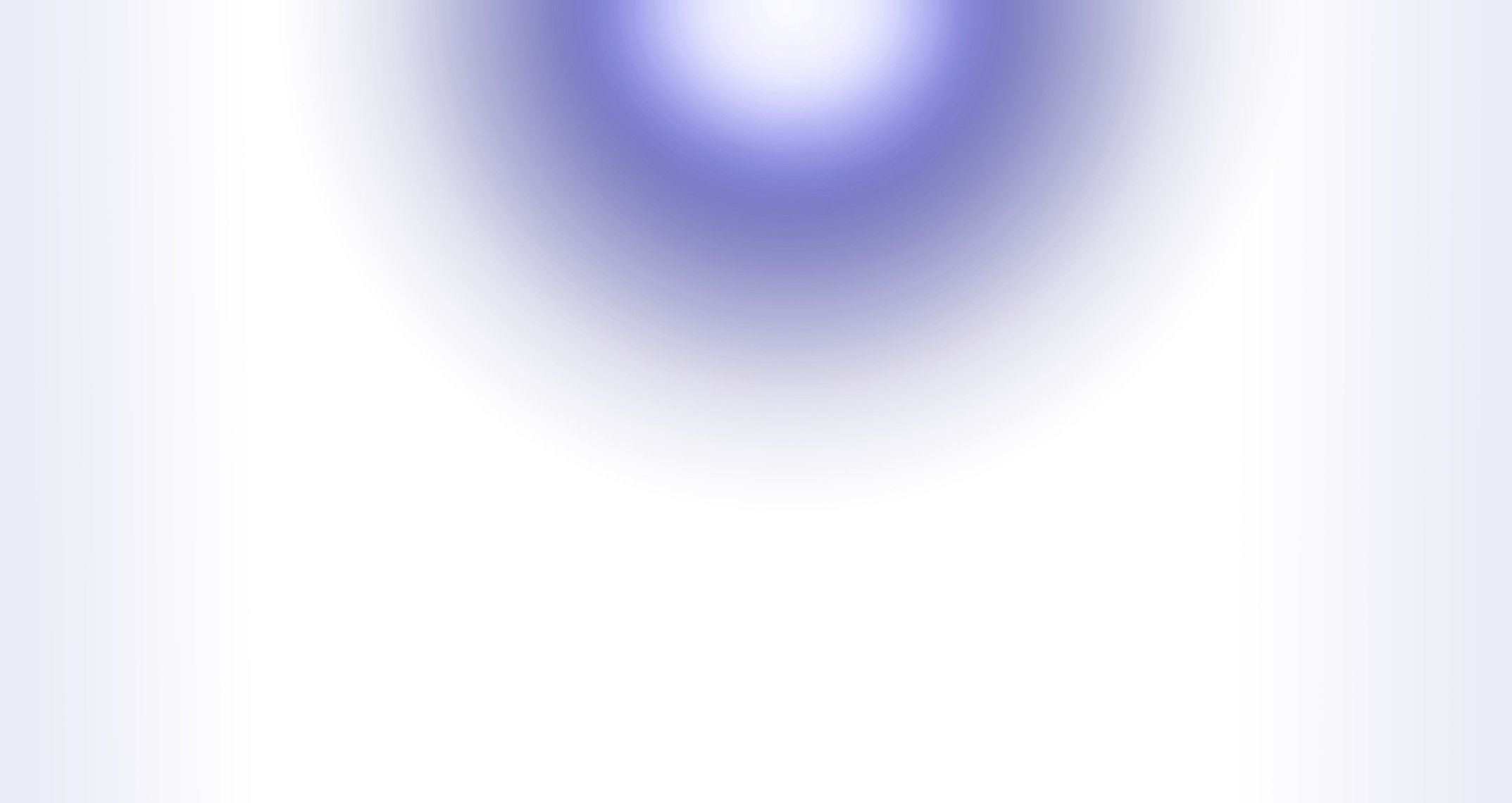
blog
FAQ

Visit my Substack: Hive Being
Visit my Substack: Hive Being

Don’t let anyone tell you that real life is lacking in poetic interest. This is exactly what the poet is for: he has the mind and the imagination to find something of interest in everyday things. Real life supplies the motifs, the points that need to be said—the actual heart of the matter; but it is the poet’s job to fashion it all into a beautiful, animated whole. You are familiar with Fürnstein, the so-called “nature poet”? He has written a poem about growing hops, and you couldn’t imagine anything nicer. I have now asked him to write some poems celebrating the work of skilled artisans, in particular weavers, and I am quite sure he will succeed; he has lived among such people from an early age, he knows the subject inside out, and will be in full command of his material. That is the advantage of small works: you need only choose subjects that you know and have at your command. With a longer poetic work, however, this is not possible. There is no way around it: all the different threads that tie the whole thing together, and are woven into the design, have to be shown in accurate detail. Young people only have a one-sided view of things, whereas a longer work requires a multiplicity of viewpoints—and that’s where they come unstuck.—Goethe (Conversations with Eckermann)
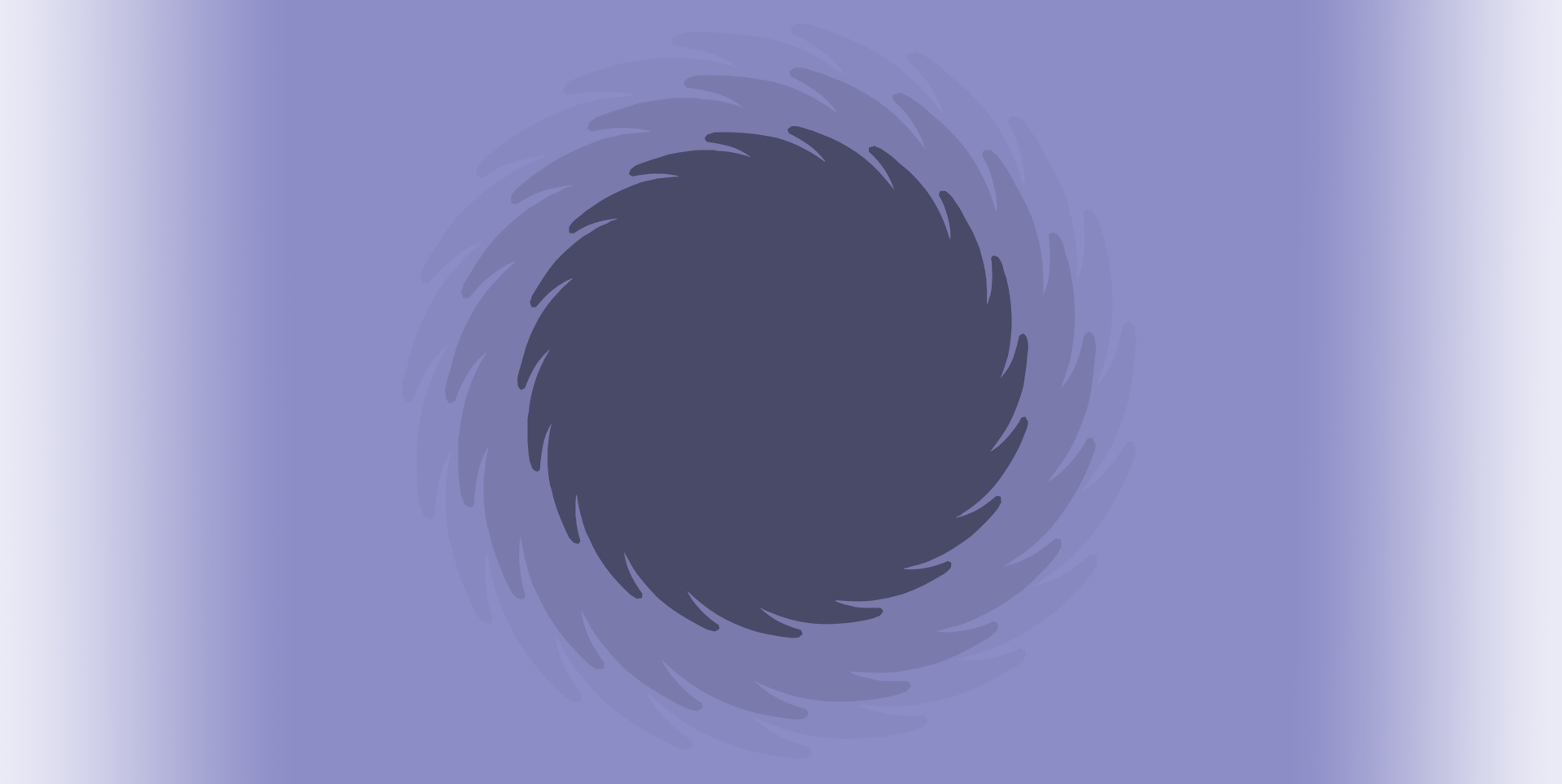
Featured Blog Posts
have appeared last night—
all those met along the way?
























